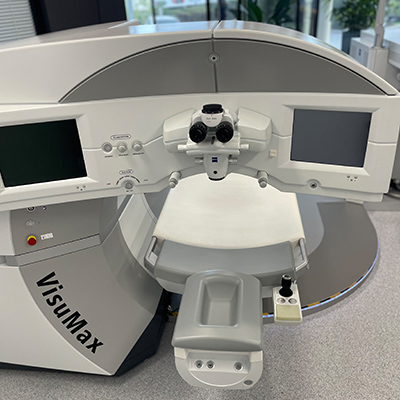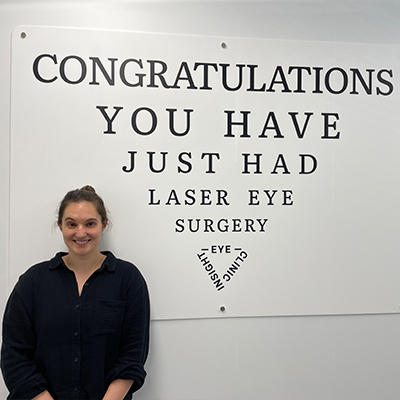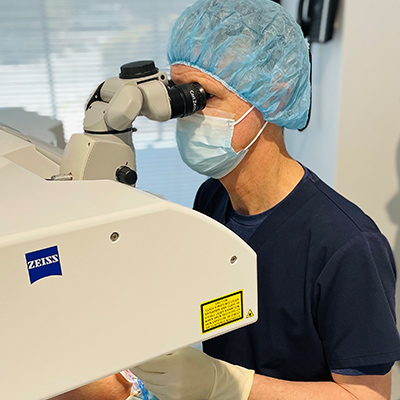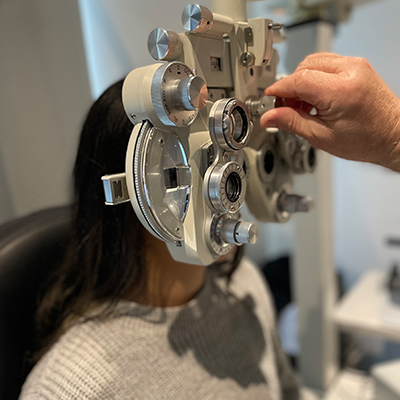Floaters. What are They?1
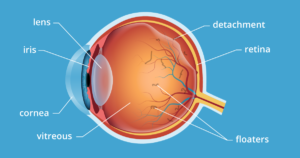
Those pesky squiggly lines in our vision can be very annoying for some and intriguing for others. How many times have you tried to look at one only for it to disappear or move? But what are they?
Floaters are small specks or clouds of tissue moving inside the vitreous fluid in your eye which float across your field of vision. They can be stringy or clumpy and light or dark in colour. What they are effectively doing is casting a shadow onto your retina which then gives the illusion that they are in front of you and not inside of your eye.
Nearsighted people are more likely to experience floaters more frequently.
 Are they dangerous?
Are they dangerous?
In most circumstances, floaters are harmless and nothing to worry about. There are various circumstances in which you should consult your doctor or Ophthalmologist. These are:
• Increase in the amount passing through your field of vision
• Persistent floaters that do not go away
• Eye pain
• Flashing lights in your vision
• Trouble seeing
• A dark shadow in your peripheral vision
The main concern with any of the above symptoms is whether or not you have had a some form of retinal tear, break  or detachment. It is important to act fast where the retina is concerned as there are procedures that can help repair the retina. In some cases, vision that is already lost, may not be regained.
or detachment. It is important to act fast where the retina is concerned as there are procedures that can help repair the retina. In some cases, vision that is already lost, may not be regained.
More reasons floaters might be present…
• Inflammation at the back of the eye
• Vitreous detachment (more common in those aged 50+ and flashing lights are often also experienced in conjunction with)
• Bleeding inside the eye
• Eye surgeries or medications
Treatment…
 Depending on the amount of you see and the cause, there are a few different treatment methods that can be very effective in reducing or ridding you of eye floaters. Always consult your doctor or Ophthalmologist for recommendation and more details:
Depending on the amount of you see and the cause, there are a few different treatment methods that can be very effective in reducing or ridding you of eye floaters. Always consult your doctor or Ophthalmologist for recommendation and more details:
• Vitrectomy – An Ophthalmologist removes the vitreous (the jelly like liquid inside of the eye) via a small incision in the eye and replaces it with a solution to help maintain the structure and shape of your eye. Although some floaters may remain and there is a possibility of new floaters developing, patients report a large improvement in decrease of eye floaters and generally improved vision.
• Laser – A special laser is sometimes used to break up the floaters inside of the eye, decreasing the size of them and allowing them to be less noticeable. Laser therapy isn’t as frequently used due to the possible risk of damage to the retina.
The most important thing is to always maintain good eye health. Have regular annual check ups with your Optometrist (more frequent if recommended or existing eye conditions) and always report any sudden changes in vision to a health care professional.
If you are currently a glasses or contact lens wearer and are unsure of the surgical options available to you, please visit our blog page. There is a plethora of information available, with a few examples of content above. We also have several informative posts related to eye health, how to improve it and why having regular eye health checks is so important.
We are FREE telephone suitability assessments. Prior to a consultation, this conversation about your vision, eye and health history allows us to establish whether or not you are likely to be a candidate for one of our many surgical options available. Dr Furness is the only Perth based surgeon that offers ALL 3 generations of laser eye surgery as well as implantable contact lenses (ICL) AND refractive lens exchange (RLE). This ensures that patients receive the treatment recommendation that is best suited for them in every instance.

